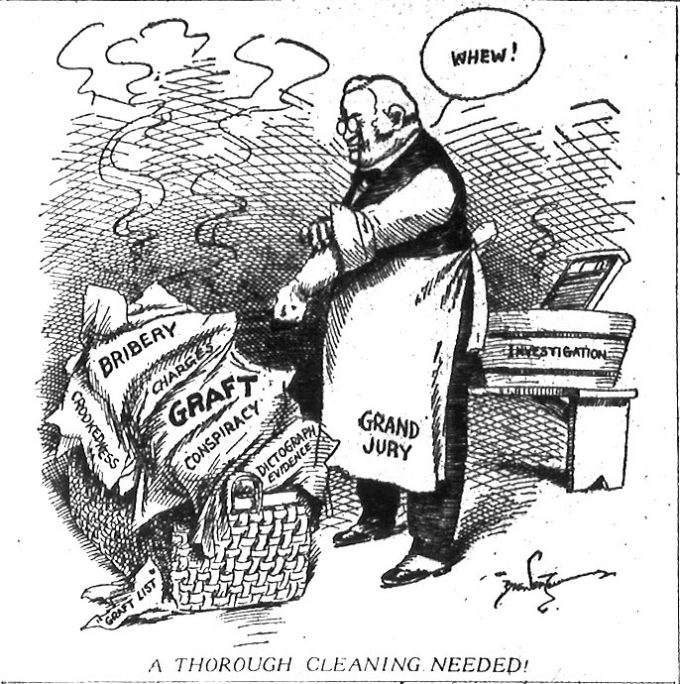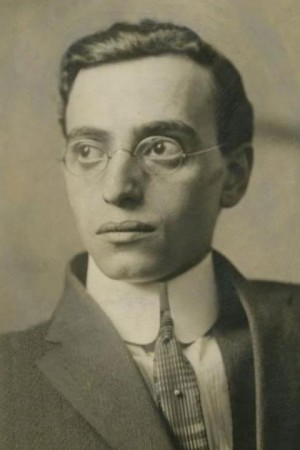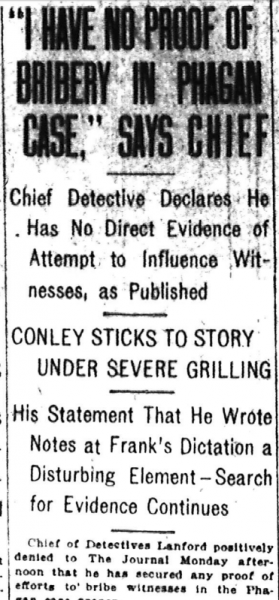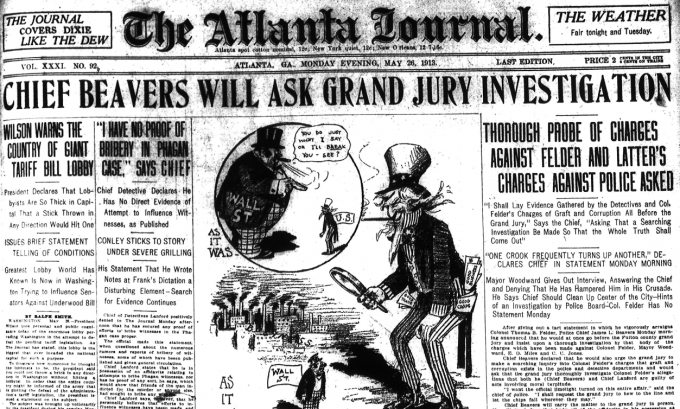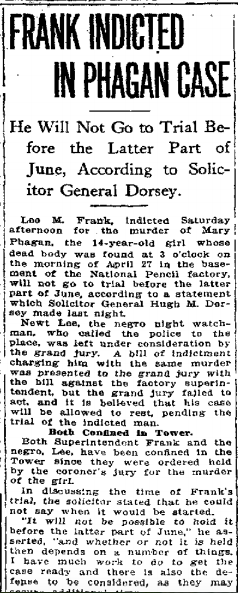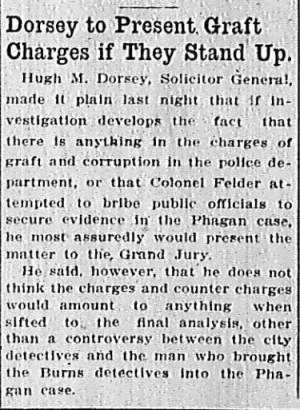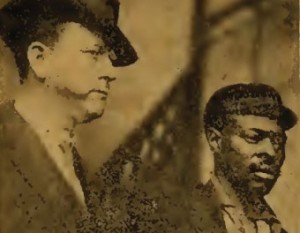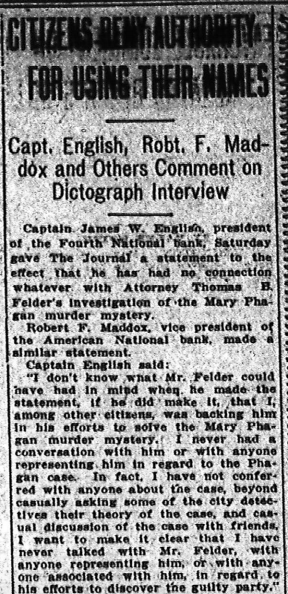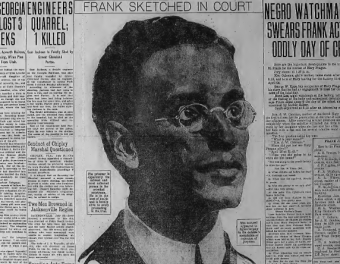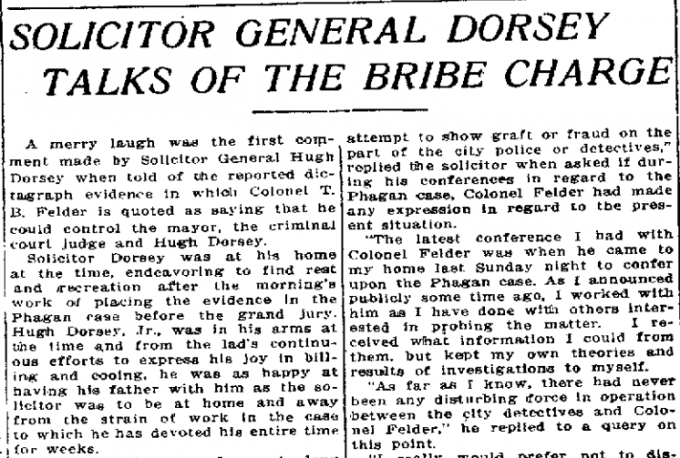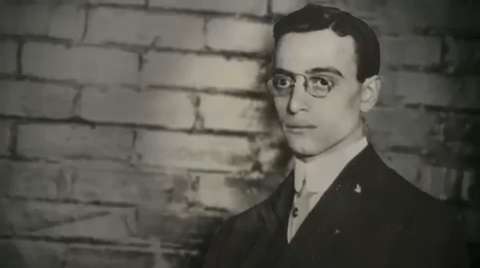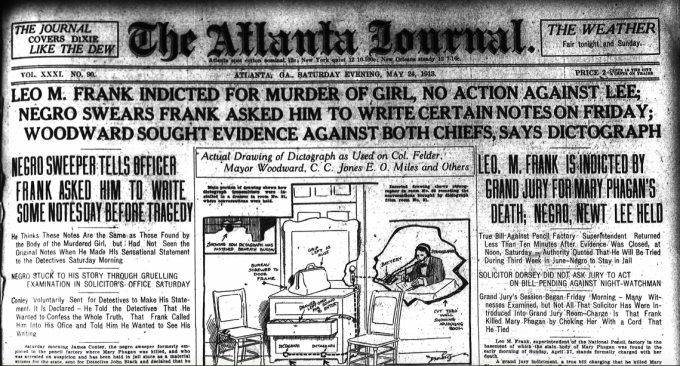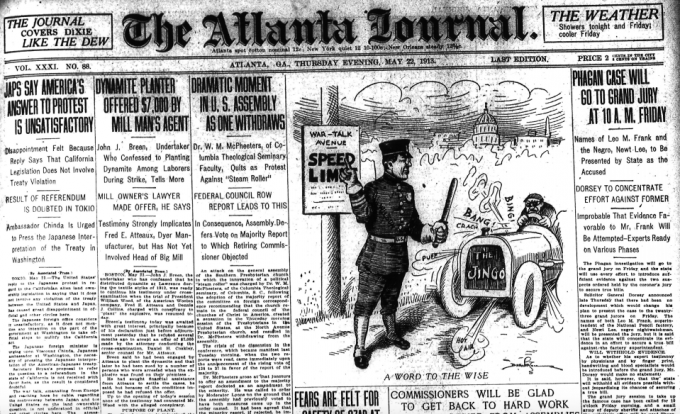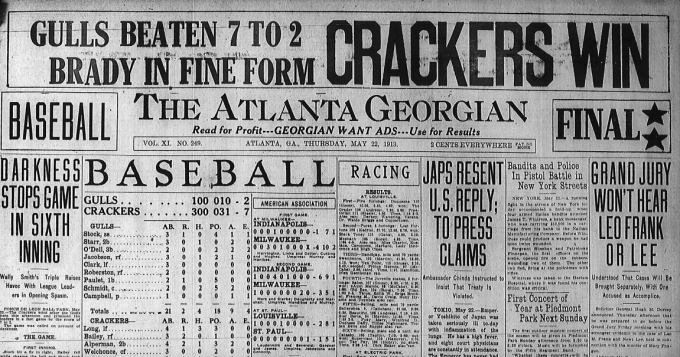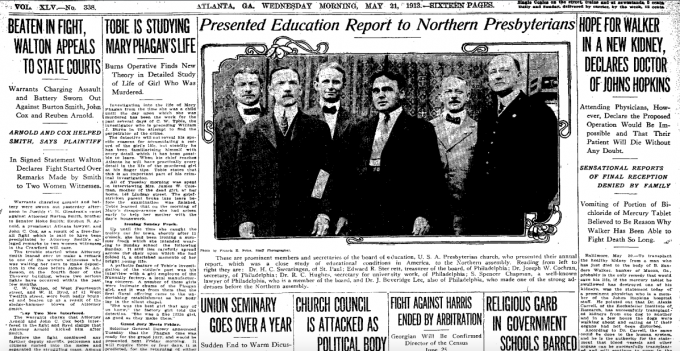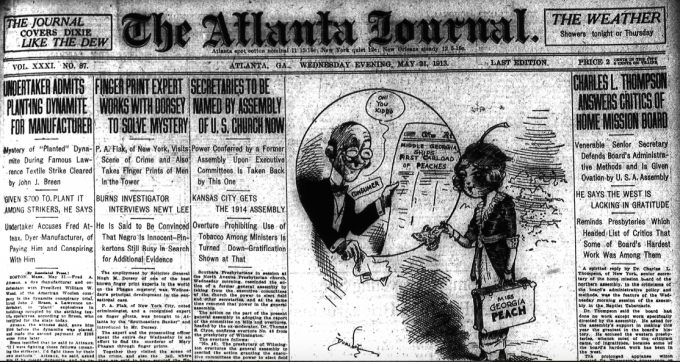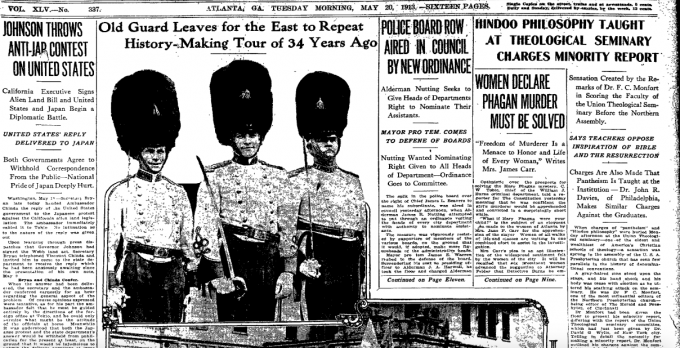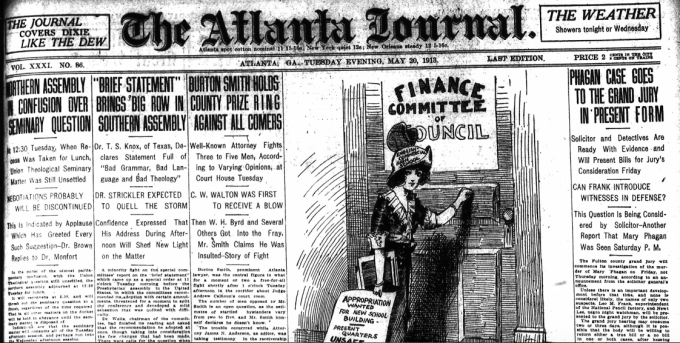Another in our series of new transcriptions of contemporary articles on the Leo Frank case.
Atlanta Journal
Tuesday, May 27th, 1913
Declares Chief Beavers Is Only Bluffing, and That if All the Allegations Made by the Police Were True, It Wouldn’t Be a Case for the Grand Jury, as He Has Violated No Law in Seeking Evidence of Corruption In Police Department
CHIEF BEAVERS CONFERS WITH SOLICITOR DORSEY IN REFERENCES TO LAYING WHOLE MATTER BEFORE JURY
He Expects the Solicitor’s Co-operation — James Conley Is Identified by Mrs. Arthur White as the Negro She Saw Lurking Near the Elevator of the Pencil Factory on Day of the Tragedy—“This Is H— of a Family Row and No Place for a Stranger,” Says Tobie
Colonel Thomas B. Felder Tuesday ridiculed the statement of Police Chief James L. Beavers that he would insist upon the grand jury making a searching investigation of the charges against Colonel Felder and also the countercharges published by the latter against the police and detective departments.
Colonel Felder appeared to be very much amused while discussing Chief Beavers’ declaration, which he branded as bluff and bluster. “I don’t believe Beavers has the least idea of going b[e]fore the grand jury,” he said, “but even should he do so there is nothing for the grand jury t[o] consider.
“If all the charges which the police and detectives have made against me were true no law has been violated. I have a perfect right to seek truthful evidence from whatever source I may choose.
“If the grand jury cares to investigate my charges against the police and detective departments I will have no hesitancy in supplying it with a list of the disorderly houses and gambling places which are operated in Atlanta without police interference, and an amazingly long list it will be, too.
“Why, there are more houses of an immoral character in the territory between the Baptist Tabernacle and the governor’s mansion than ever existed in the old segregated district, and places of this kind are scattered throughout the city, no section being immune from them. Continue Reading →

